Want to attend the course but can’t make it on this date?
Fill in your details below and we’ll notify you when we next present a course in this area:
When people learn that we offer snake awareness and venomous snake handling training and work with snakes daily, they often share some of the most absurd and exaggerated stories imaginable. Tales of snakes flying or 6-meter-long Black Mambas that chase vehicles – the list of these bizarre stories goes on and on.
Several people tell us about a rattlesnake that they saw whilst hiking in Magoebaskloof or a King Cobra crossing the road in Kruger National Park, and while our standard answer is that these snakes don’t occur in Africa, it is not exactly the case.
Thousands of people keep pet snakes in South Africa and a number of hugely popular reptile expos are hosted at various venues throughout the country. In many African countries, obtaining the required permits to keep indigenous snakes is quite a mission, and many avid snake enthusiasts opt for keeping exotic snakes rather, as very often there are no permits required for keeping these. In several provinces in South Africa there is little control over possessing exotic snakes including venomous ones. In some American states a keeper is expected to shadow a qualified keeper of venomous snakes and may also have to complete a certain number of hours working with venomous snakes before being permitted to keep venomous snakes themselves. Such requirements enable the keeper to learn all about snake husbandry and safe handling protocols. In Australia there are written exams which must be passed to keep different types of snakes.
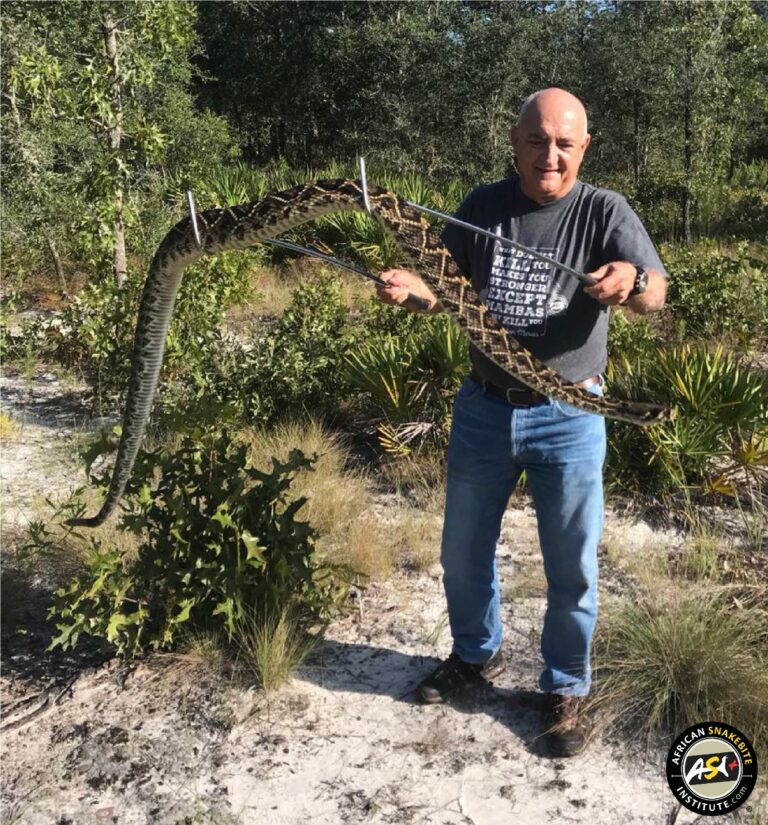
In some provinces in South Africa, a person can own any of the highly venomous rattlesnake species, exotic cobras, or even non-indigenous African species without having to obtain permits. There are a handful of blacklisted exotic species in South Africa such as Indian Pythons or Brown Tree Snakes. Others, like Australian Carpet Pythons or Burmese Pythons, require an Alien Invasive Species permit.
Harmless species like Ball Pythons and Corn Snakes come in a range of interesting colour morphs and are popular as beginner snakes for kids or, in the case of Ball Python morphs, high-end snakes that can costs thousands of Rands. These snakes are bred on a large scale every year to supply the trade.
There will always be lot of controversy around keeping snakes in confinement and certain people consider this a cruel practice. But the bottom line is that if the animal is kept in a suitable enclosure, with access to clean water, shelter, correct temperature and food, it is no different from keeping various other domestic pets. Many pet snakes live for a number of years and may even breed every year or two.
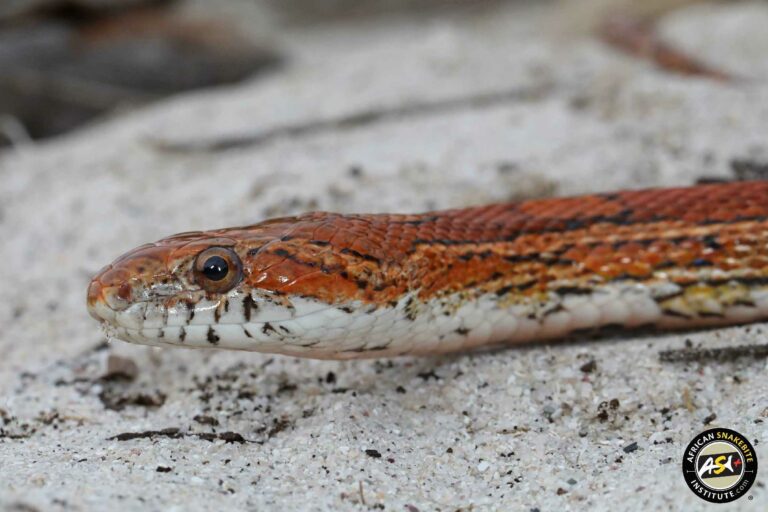
Should you wish to keep snakes you need to consider all the factors that go hand in hand with good practices. Cleaning enclosures and feeding snakes can take up a lot of a keeper’s time, especially when maintaining large collections.
Ensuring that enclosures are secure is vital for those keeping snakes, especially venomous snakes. We have been called out for a Rattlesnake removal from a suburban garden in Fourways and were recently asked to identify a snake the poster mistakenly thought was a Boa. It turned out to be someone’s escaped Copperhead – a highly venomous species from North America. A snake remover in the Cape recently caught a highly venomous Red Spitting Cobra from East Africa – likely an escaped pet from a collection.
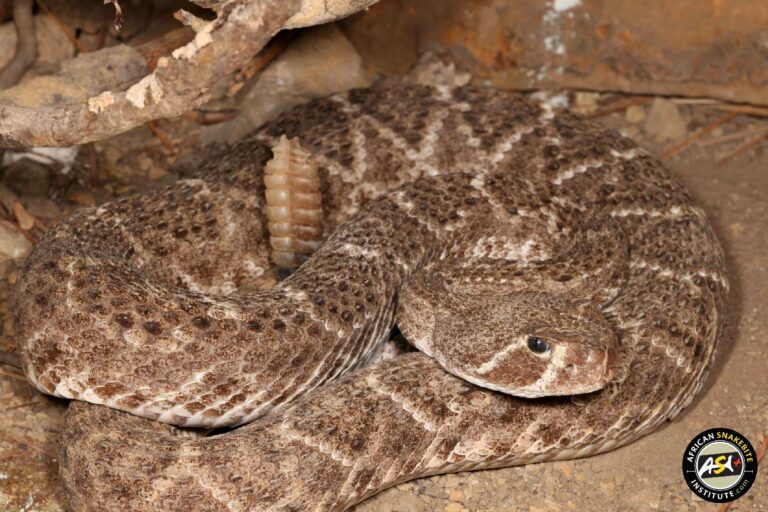
There are some major concerns with regards to escaped exotic snakes:
1). If pairs of snakes or gravid females escape, there is the danger that they could establish and compete with local species. While this is a major problem in the USA, especially the Everglades with Burmese Pythons and a variety of other reptiles, we have no evidence of exotic snakes escaping and establishing in South Africa, except for the Flowerpot Snake that came in with ornamental plants and is now well establishing near our major ports. South Africa has an abundance of predators and extreme weather conditions in some regions where most tropical species would die in winter.
2). Exotic snakes can spread parasites and diseases which could impact local snakes.
3). Venomous exotic snakes could pose a very complicated snakebite problem, with doctors not knowing how to treat bitten victims. Getting antivenom for venomous exotic snake bites can be extremely difficult and rudely expensive in Africa. We have very few individuals who stock antivenom for exotic snakes and the cost of antivenom for a single rattlesnake bite could easily exceed R400,000. Most bites will have to be treated symptomatically and serious bites could result in fatalities or serious tissue damage.
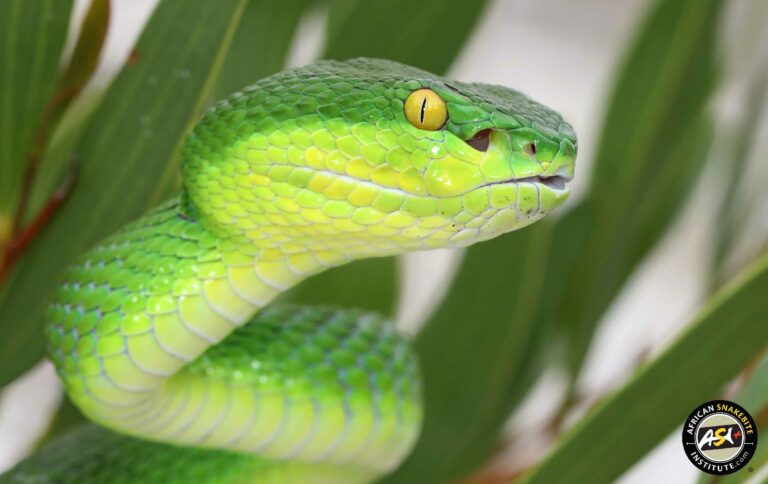
If you are planning on keeping exotic snakes, make sure you do your homework first. Find out what habitat the snakes naturally occur in, set up enclosures with correct heating options, make sure you have the time to keep the animal’s enclosure clean and the time to feed and care for the snakes. You will also need to secure a source of food. It may be difficult to find a supplier of rodents in certain parts of South Africa or other African countries. If you are keeping venomous snakes, make sure you have a protocol in place for bites, who to contact in the event of a bite and where to obtain antivenom. Also check whether your medical insurance covers exotic snake bites. For those who require exotic antivenom after a serious bite, bear in mind that the treatment could run into hundreds of thousands of Rands.
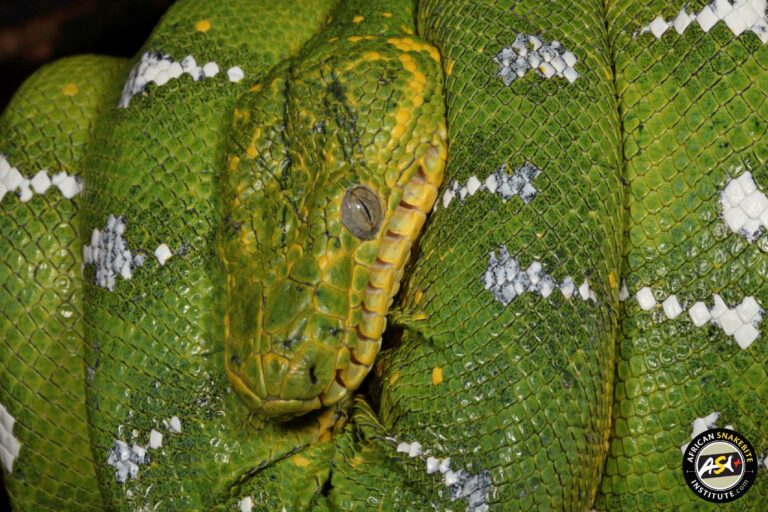
It is advisable to join a keepers association or local forums to have some support when keeping snakes. There are several quality suppliers of exotic snakes and keeping tanks and enclosures who will be happy to assist with any questions around keeping conditions or the best beginner snakes.
It is also advisable to locate a vet that is willing to work on reptiles and potentially highly venomous exotics. Most vets do not specialise in reptiles, especially venomous exotic snakes.
For those of you doing snake removals, be cautious of removing escapee exotic snakes as there are some highly venomous species in the country and identifying exotics may be tricky. Treat any unknown exotic snake as potentially dangerous and practice safe handling techniques. Such snakes should never be released and should be handed over to a zoo or snake park.
CONTACT US:
Product enquiries:
Caylen White
+27 60 957 2713
info@asiorg.co.za
Public Courses and Corporate training:
Michelle Pretorius
+27 64 704 7229
courses@asiorg.co.za
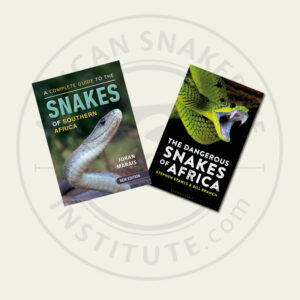 ASI Book Combo 1
ASI Book Combo 1
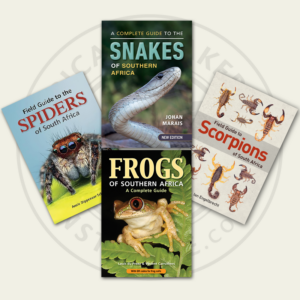 Rangers Book Combo 2
Rangers Book Combo 2
 ASI Combo C
R1,680.00
ASI Combo C
R1,680.00
Want to attend the course but can’t make it on this date?
Fill in your details below and we’ll notify you when we next present a course in this area:
Want to attend the course but can’t make it on this date?
Fill in your details below and we’ll notify you when we next present a course in this area:
Want to attend the course but can’t make it on this date?
Fill in your details below and we’ll notify you when we next present a course in this area:
Want to attend the course but can’t make it on this date?
Fill in your details below and we’ll notify you when we next present a course in this area:
Want to attend the course but can’t make it on this date?
Fill in your details below and we’ll notify you when we next present a course in this area:
Want to attend the course but can’t make it on this date?
Fill in your details below and we’ll notify you when we next present a course in this area:
Want to attend the course but can’t make it on this date?
Fill in your details below and we’ll notify you when we next present a course in this area:
Want to attend the course but can’t make it on this date?
Fill in your details below and we’ll notify you when we next present a course in this area:
Want to attend the course but can’t make it on this date?
Fill in your details below and we’ll notify you when we next present a course in this area:
Sign up to have our free monthly newsletter delivered to your inbox:
Before you download this resource, please enter your details:
Before you download this resource, would you like to join our email newsletter list?